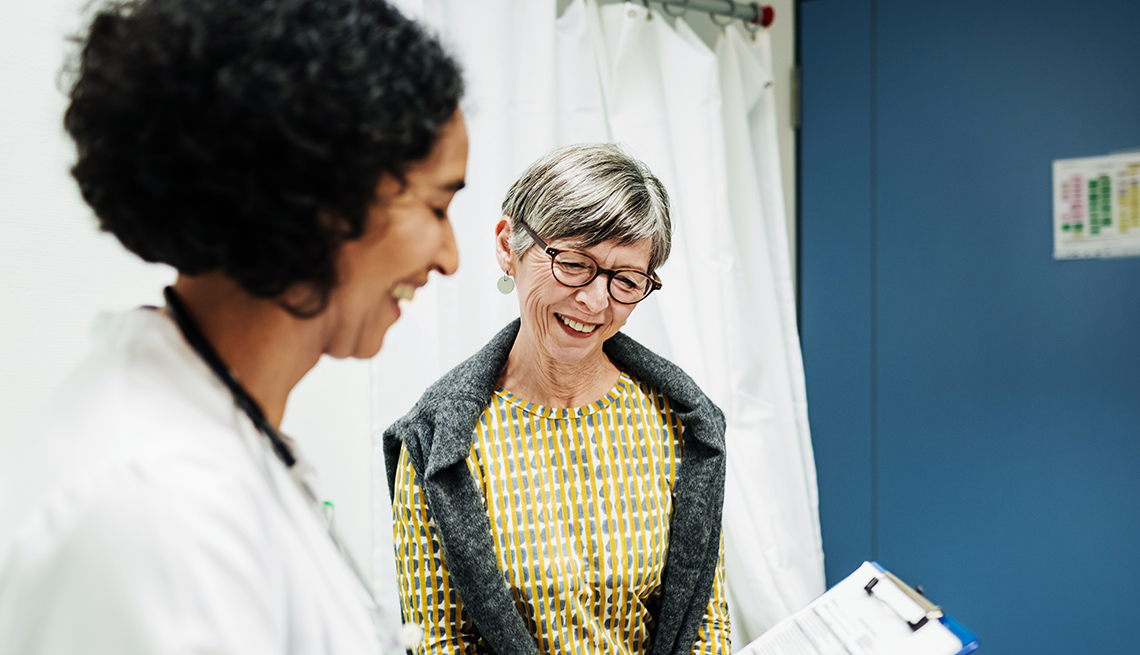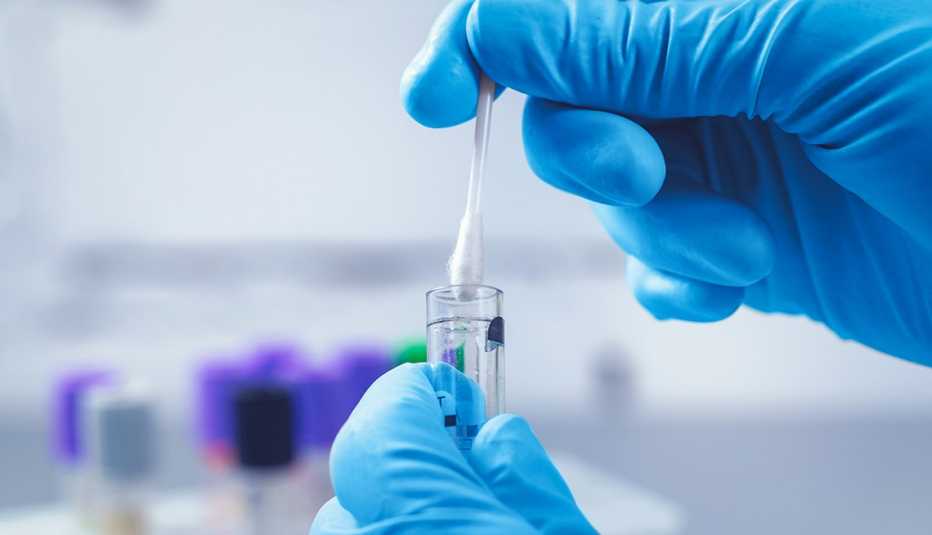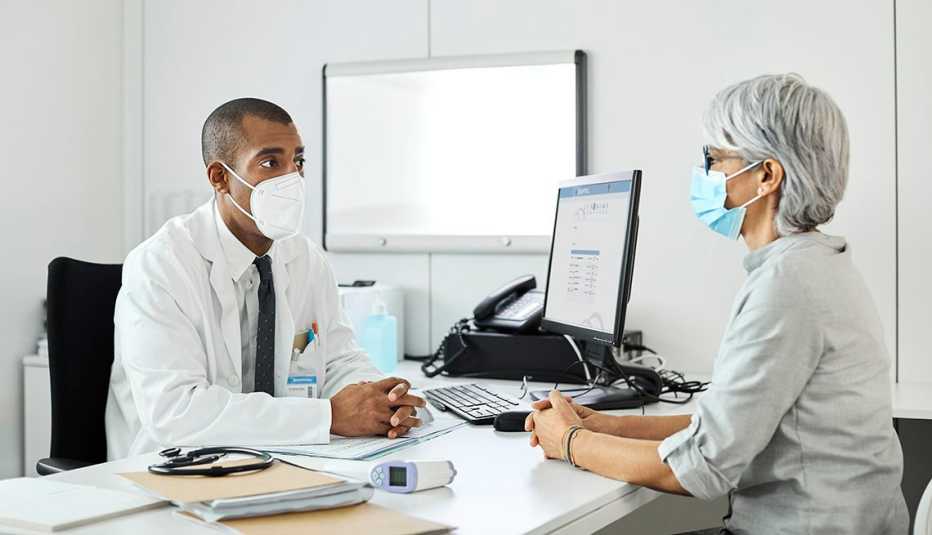Staying Fit
For women who years ago grappled with the decision about whether or not to get genetic testing for breast cancer, experts say it may be worth going another round. Although genetic testing has long been recommended for women who have a close family history of the disease, experts are now recommending testing to others as well, including survivors of breast and ovarian cancer and women recently diagnosed with breast cancer.
In addition, they say that women who had a genetic test before 2014 should consider being tested again. That’s because today’s tests are more comprehensive, and scientists in recent years have identified additional genes linked to breast cancer.


AARP Membership— $12 for your first year when you sign up for Automatic Renewal
Get instant access to members-only products and hundreds of discounts, a free second membership, and a subscription to AARP the Magazine.
While a genetic test can’t tell you for sure if you are going to develop cancer, it can indicate an increased risk, allowing you to take steps to reduce that risk or be more proactive about screening. If you’ve been diagnosed with cancer, knowing if you have an inherited gene mutation can help guide your treatment decisions. It can also be lifesaving for your relatives.
Even though genetic testing is easy, widely available and less expensive than it used to be, experts say many good candidates for testing haven’t been screened.
Testing for Breast Cancer?
Experts increasingly say yes.
A genetic counselor can help you assess your risk of breast cancer, discuss the risks and benefits of genetic testing, and order a test for you if you decide to move forward. Consultations are available in person, by telephone or through video call. The National Society of Genetic Counselors offers a searchable database of more than 3,300 genetic counselors.
“As a society, what we know is that we’re not maximizing the number of people getting tested who would benefit from it,” says Tuya Pal, M.D., a clinical geneticist and associate director for cancer health disparities at Vanderbilt-Ingram Cancer Center in Nashville, Tennessee. “Right now, 25 years after the discovery of BRCA1 and 2, we think maybe 20 percent of adults with BRCA1 and 2 have been identified. That means there are still a lot of unidentified high-risk people.”
Breast cancer is the second most common cancer among women in the United States (after skin cancer) and the second leading cause of cancer deaths. In 2021, about 281,550 new cases of invasive breast cancer will be diagnosed in women, according to the American Cancer Society.
Who should get tested?
Not everyone needs to be tested. The Centers for Disease Control and Prevention (CDC) recommends putting together your family health history of breast and ovarian cancer and then talking to your doctor to determine whether you’re at increased risk and if it makes sense to get tested.
Most experts agree you should be tested if:
- You have been diagnosed with ovarian, pancreatic or breast cancer at a younger age (especially if it’s triple-negative breast cancer)
- You are a man who has been diagnosed with breast cancer, pancreatic cancer, or high-grade or metastatic prostate cancer
- You have been diagnosed with two or more types of cancer (including a second breast cancer)
- You are of Ashkenazi Jewish descent. About 1 in 40 people of Ashkenazi Jewish descent in the U.S. have BRCA1 or BRCA2 mutations, compared with about 1 in 400 women in the general population
- You have a family history of a known inherited mutation
- You have a family history of breast cancer at a younger age, more than one family member on the same side with breast cancer, or breast cancer in a male family member
- You have a close family member with a history of ovarian, pancreatic or metastatic prostate cancer
If you don’t fit into one those scenarios, you should still consider talking to a genetic counselor, because there are many other factors that can increase risk, says Joy Larsen Haidle, a genetic counselor and the cancer expert for the National Society of Genetic Counselors.
For example, people often assume you need to have multiple cases of breast cancer in your family to qualify for testing, but other cancers — including pancreatic, prostate, ovarian and colon cancer — can be caused by breast cancer gene variants. “Once you pull those together,” Larsen Haidle says, “all of a sudden things that felt disconnected to the average person are connected under one cause.”
Other candidates for testing include women who were previously treated for breast, ovarian, fallopian tube or peritoneal cancer — even if they are now cancer-free. Testing can tell them if they are at increased risk for a second cancer and also if their relatives are at risk, Larsen Haidle says.
How testing can help if you’ve already been diagnosed
If you’ve been recently diagnosed with breast cancer, your doctor may recommend genetic testing depending upon your age at diagnosis, your family history, what type of breast cancer you have and other factors.




































































